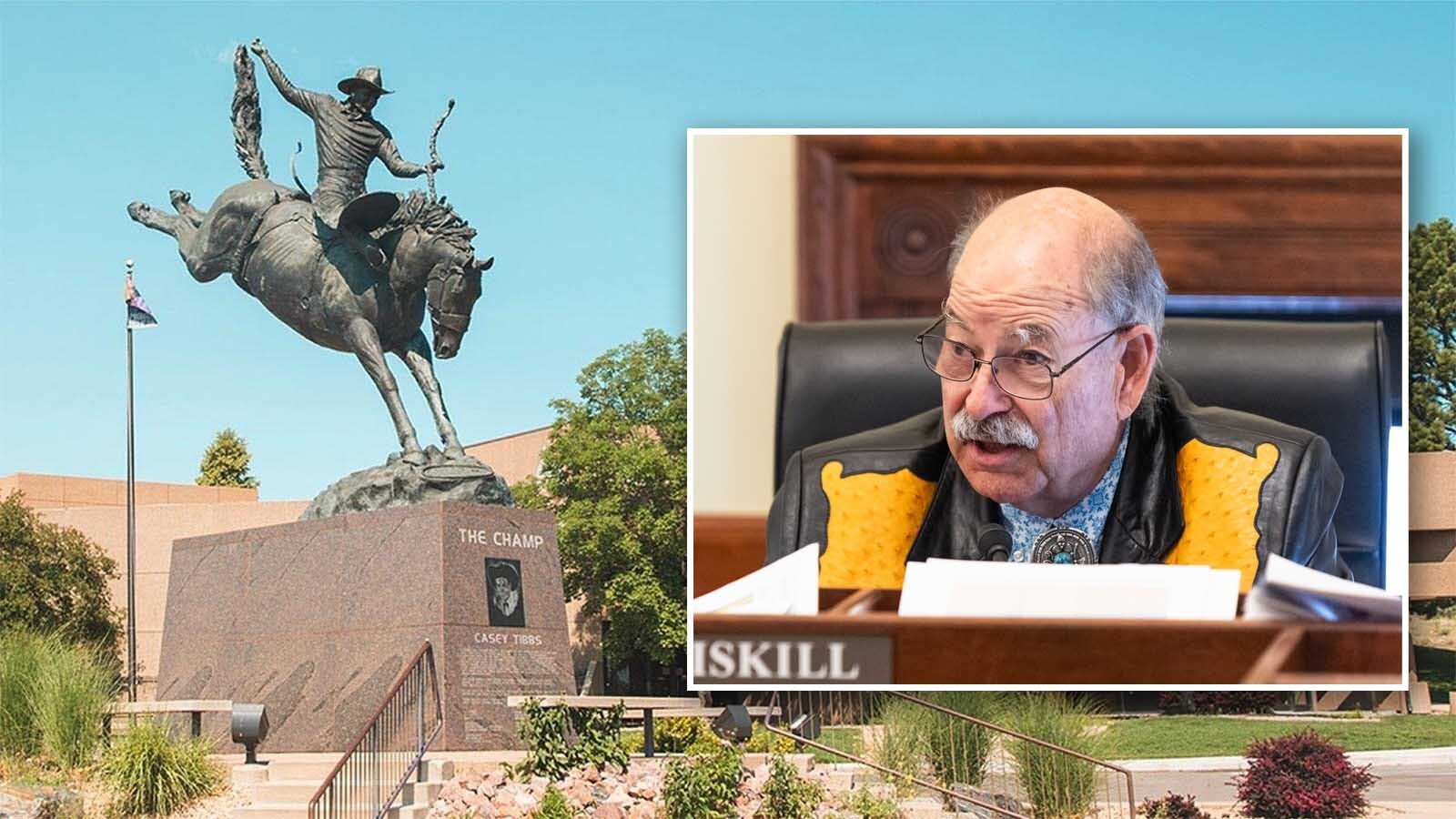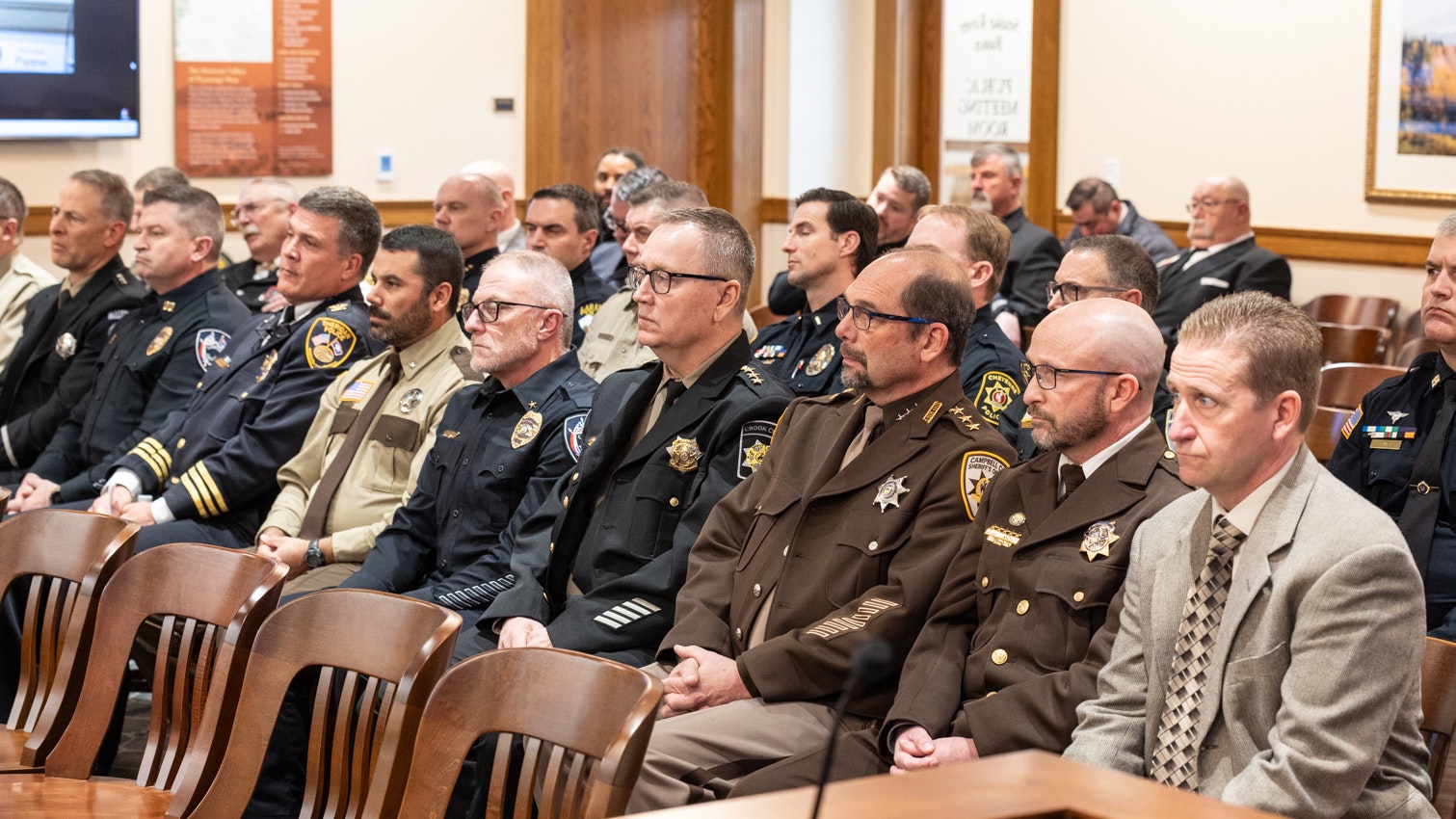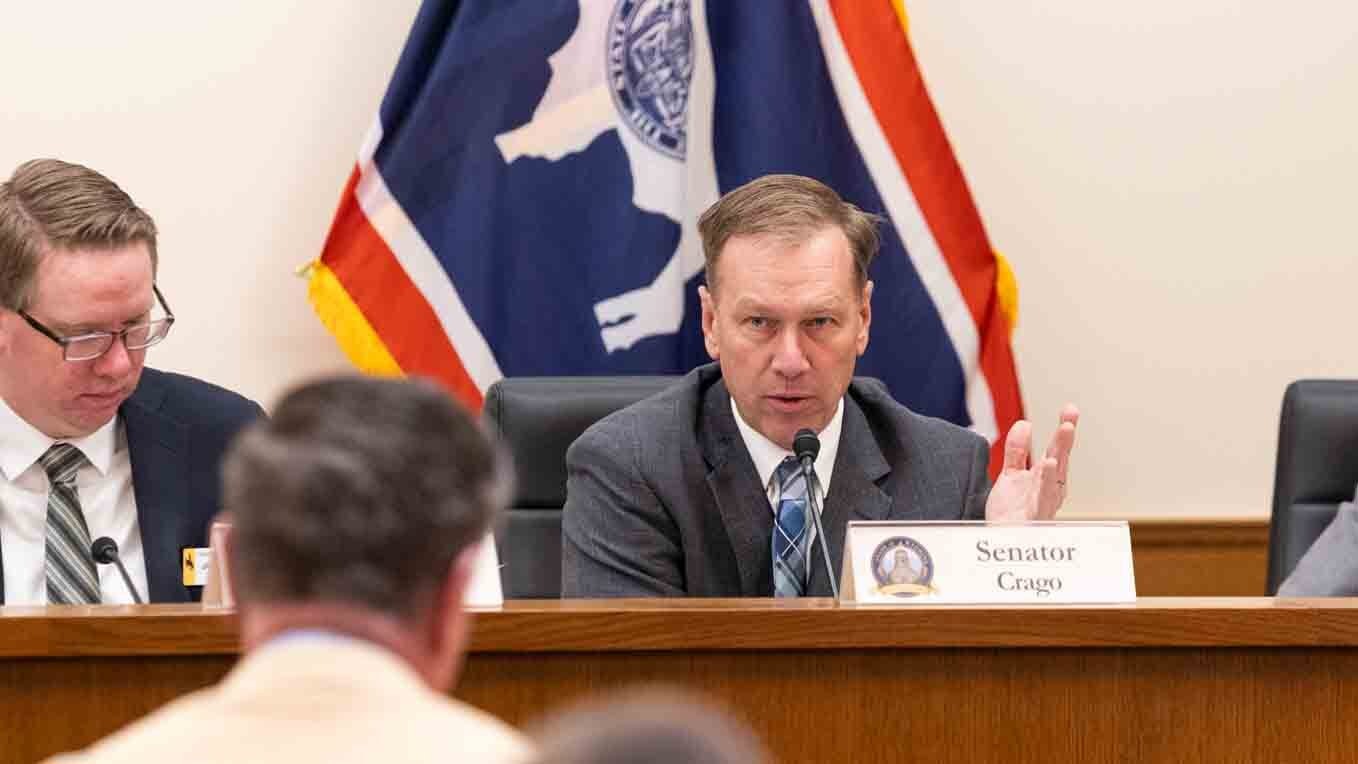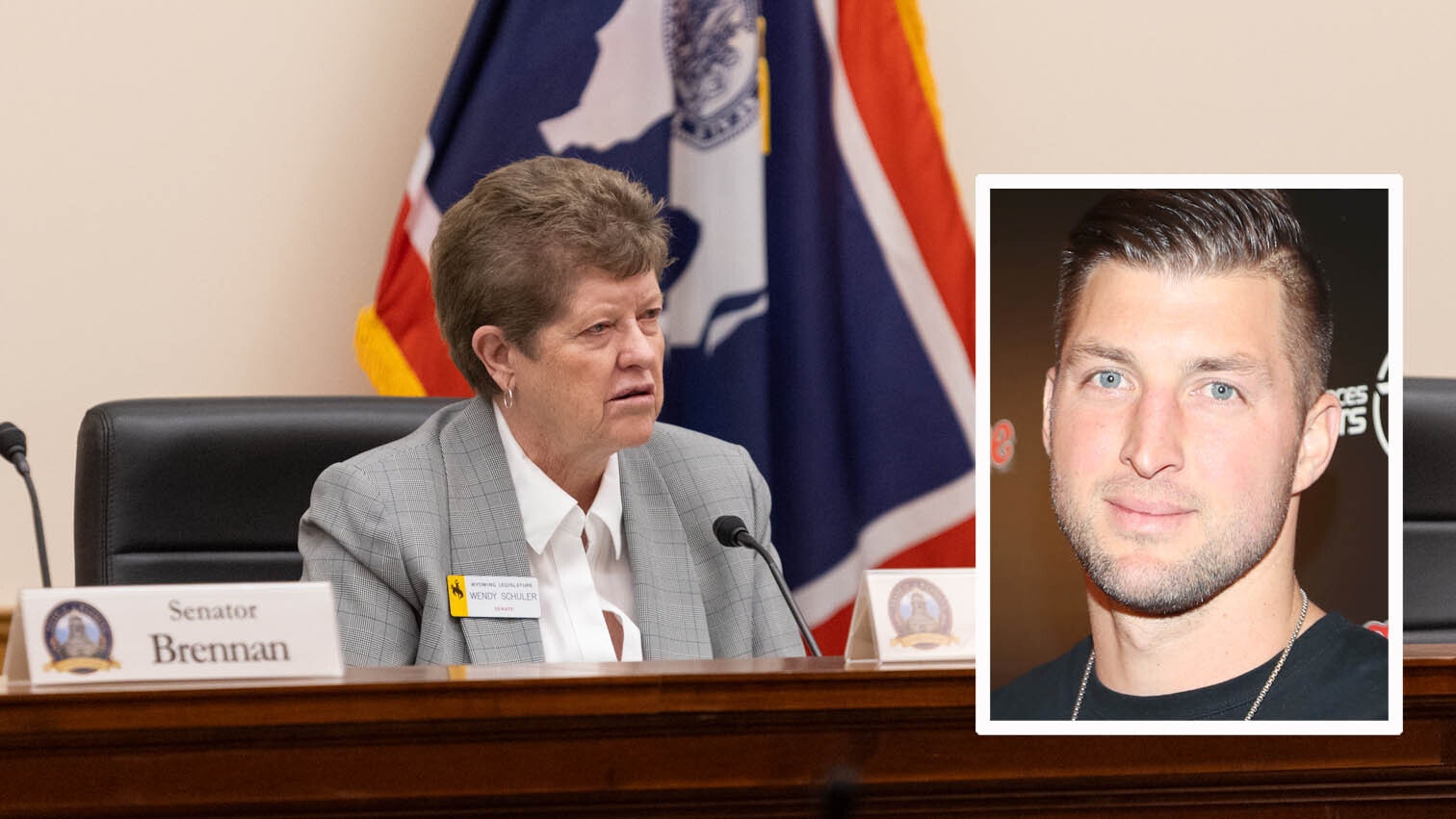WASHINGTON, D.C. — U.S. Sen. John Barrasso, R-Wyoming, helped pass a budget plan for the federal government this week amid concerns about cuts to land-use agencies tied to Wyoming’s economy and recreational opportunities.
The Republican-controlled Senate voted 52-48 early Friday morning after an all-night session to pass a 10-year budget resolution.
It seeks to increase spending for border protection and the military while also providing incentives to boost production of energy including oil and gas, a key Wyoming industry.
A separate Senate measure still being drafted aims to extend tax cuts that were passed in President Donald Trump’s first term. The House, where Republicans also hold a majority, is due to vote next week on its own long-term budget blueprint.
The budget process is taking shape against the backdrop of Trump’s shrinking of government, including federal lands agencies involved in Wyoming industries and recreation.
Cowboy State Daily asked lawmakers, agencies and business representatives about the downsizing, which overlaps with the budget process in some ways.
Industries, Recreation
To help fund their agenda outlined in the budget resolutions, Republican leaders in Congress are counting on increased revenue from expanded energy production, especially oil and gas, in line with Trump’s goal of U.S. energy dominance.
In addition to paying taxes, companies pay hefty royalties and lease fees for energy development on public lands. They work closely with agencies,including the Bureau of Land Management (BLM) and the U.S. Forest Service (USFS).
Although Trump openly embraces the fossil fuel industries, Cowboy State Daily has looked into whether the shrinking of land-use agencies could have unintended impacts such as slowdowns in leasing, permitting and other regulatory processes.
So far, the impacts generally known about cuts to these agencies are related to tourism and outdoor lifestyles. The National Park Service (NPS) has also been hit, though the effects appear to be in flux.
According to a Los Angeles Times report Thursday, the Trump administration has backtracked on NPS firings to a large degree, but not entirely. The Associated Press reports that 16 of 17 supervisory positions at Grand Teton National Park were eliminated.
‘Voice At The Table’
Barrasso, the second-ranking Republican in the Senate, worked to get the chamber’s resolution passed and tackled questions from Cowboy State Daily about cuts to agencies that manage public lands.
Barrasso said he agrees with Trump’s efforts to rein in “wasteful Washington spending,” but emphasized he is keeping watch on what the cost-cutting could entail for Wyoming.
“We need to make sure key programs, permitting processes, basic government functions and public safety aren’t compromised,” Barrasso said. “I’ve made sure the administration understands how important it is to keep our national parks, forests and federal lands adequately staffed.
“We will continue working with all agencies to understand the impacts these proposed cuts have in Wyoming and to ensure our communities have a voice at the table.”
U.S. Sen. Cynthia Lummis, R-Wyoming, also said she supports cutting “reckless” spending.
“I will continue to work with the Trump administration to ensure that we protect programs critical to Wyoming, our national parks and federal lands, and our amazing workers,” she added.
Thousands of Wyomingites work in the oil and gas industry alone, and many others are employed in additional regulated, natural-resources industries such as coal and timber.
Agencies
Trump issued orders in January instituting a hiring freeze across nearly all agencies and a halt to new regulations pending his administration’s review.
More recently, thousands of federal workers have been fired or accepted buyouts to resign. Trump’s Department of Government Efficiency (DOGE), led by Elon Musk, and the Office of Personnel Management are carrying out the cost-cutting efforts.
The Agriculture Department, which oversees the U.S. Forest Service, said in an email to Cowboy State Daily that the service fired “about 2,000 probationary, non-firefighting employees.”
The department’s email did not address questions about business impacts specifically, but said Agriculture Secretary Brooke Rollins “is committed to preserving essential safety positions and will ensure that critical services remain uninterrupted.”
The BLM did not respond to an email from Cowboy State Daily asking about staff reductions in Wyoming or elsewhere and whether any such cuts pertained to the energy industries.
During debate on the Senate budget resolution, some lawmakers derided cuts affecting America’s national parks.
“We need more people at the national parks, not less,” U.S. Sen. Angus King of Maine, an independent who caucuses with Democrats, said on the Senate floor Thursday about NPS staff.
King said government efficiency is a good goal. But he added — echoing many Democrats — that the Trump administration is carrying out the effort arbitrarily and thoughtlessly. He also questioned the legality of it.
Few Republicans have gone on record questioning DOGE, though one who did so is King’s colleague in Maine, U.S. Sen. Susan Collins.
A Republican who chairs the Appropriations Committee, Collins told Axios that the administration is moving “too fast” and should take a “more surgical approach.”
‘Critical Step’
Major trade associations for oil and timber companies, the American Petroleum Institute and the Forest Resources Association, did not reply to Cowboy State Daily emails seeking comment on private-sector impacts of government cost-cutting.
The API, however, did issue a statement posted on the House Budget Committee website applauding the chamber’s budget resolution.
“The House budget resolution takes a critical step toward restoring American energy dominance by expanding access to federal lands and waters, ensuring onshore and offshore lease sales move forward, and incorporating sensible tax provisions,” the petroleum group’s statement said. “Expanded development and competitive tax policies go hand in hand, driving investment, job creation and affordable energy for consumers. We applaud policymakers for advancing pro-growth reforms that solidify the U.S. as the world’s energy powerhouse.”
Some Democrats, meanwhile, are accusing Trump and the GOP-controlled Congress of unfair tax giveaways to the oil industry through the budget resolutions.
Deficits and health care spending cuts have also emerged as key controversies. Democrats and even some Republicans have voiced concerns about a potential $880 billion in cuts to Medicaid.
According to the Bipartisan Policy Center, a nonprofit non-governmental group, the Senate’s 10-year budget resolution could lead to an increase in the deficit by $342 billion. The group says the House measure could cause it to balloon much more — a potential $3.3 trillion increase over 10 years.
The budget resolutions would not have the force of law if passed but would shape legislation to carry out the taxing, spending and deficit policies that these current measures set forth.
Sean Barry can be reached at sean@cowboystatedaily.com.





